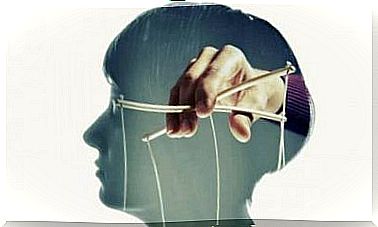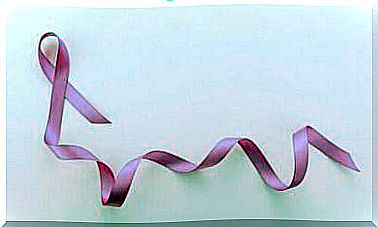The Connection Between Anger And Physical Pain

You have probably already observed the connection between anger and physical pain in yourself. During this intense emotion, the muscles tense and the heart rate increases. You feel a lump or discomfort in your stomach and you are stressed. Usually this condition is short-lived and quickly loses its strength.
Strife, outrage, injustice … there are different causes that cause anger. We feel attacked, injured or threatened and react accordingly. Most of the time, however, we don’t deal with this emotion properly, which means that we can regret our wrongdoing afterwards. Another problem is that many people suppress their anger. As a result, somatization can lead to physical and psychological problems.

Relationship and consequences of anger and physical pain
Anger is a fascinating emotion, but one that has not been adequately explored. It was only a few decades ago that neuroscience began to study various aspects related to this emotion. Today we know the phylogenetic origin, which leads experts to the conclusion that this psychophysiological condition has had a significant impact on our survival.
It is an emotion with a large physical impact that is intended to encourage us to respond to an aversive stimulus. Studies by the University of Rome and other studies indicate that it is a condition that develops from the inside out. That is, the brain warns us that there is something we need to respond to. There is then a great deal of physical tension that requires a response.
Anger is an emotion that invites action. She expects us to do something when we feel angry, hurt, outraged, or threatened. We must do the best we can and exercise adequate control for this emotional response to be healthy and effective. However, there is a problem with this : the connection between anger and physical pain is given because we do not know how to deal with this reality properly.
When we can’t react to injustices
Anger leads to physical pain if we don’t use emotional intelligence. Sometimes there is a lack of resources or we don’t have the courage to set limits. In other cases it is not easy to react properly, we are nervous and do not know what to do. Examples of this are social injustice, discrimination or a problematic family. The solution is not always easy.
Often times we swallow without accepting the emotion, which is frustrating. A passive attitude is just the opposite of what anger is supposed to do. It requires a response, so the body is tense and the levels of cortisol in the blood rise, which leads to stress.
Emotional inhibition in anger and physical pain
Chronic illnesses are most affected by emotional effects. For example, patients with chronic low back pain or neuropathies often experience worsening symptoms when they are angry.
A study by Rush University and other research also found that the tendency to silence, inhibit, and not cope with anger increases the feeling of physical pain. If you don’t process this negative emotion properly, the tension increases, which often affects the back and neck area

How can I deal with my anger?
We know that anger and physical pain are related. We also know the data that suggests that people with chronic pain pathologies experience a greater intensity of their symptoms when they experience anger and frustration … But what can you do in this case?
- Anger management is not based solely on meditation or deep breathing. You need to incorporate appropriate emotional techniques into your daily life. It is also important to control your thoughts. Negative self-talk only adds to the discomfort.
- On the other hand, problem solving techniques are very practical. You need to know how to deal with complicated situations, which skills will help you and who can support you if necessary.
Also, approaches like Acceptance and Commitment Therapy (ACT) are very useful for accepting things that are beyond your control. Thinking about your values and new goals can also help you reduce the emotional and physical effects of anger.









